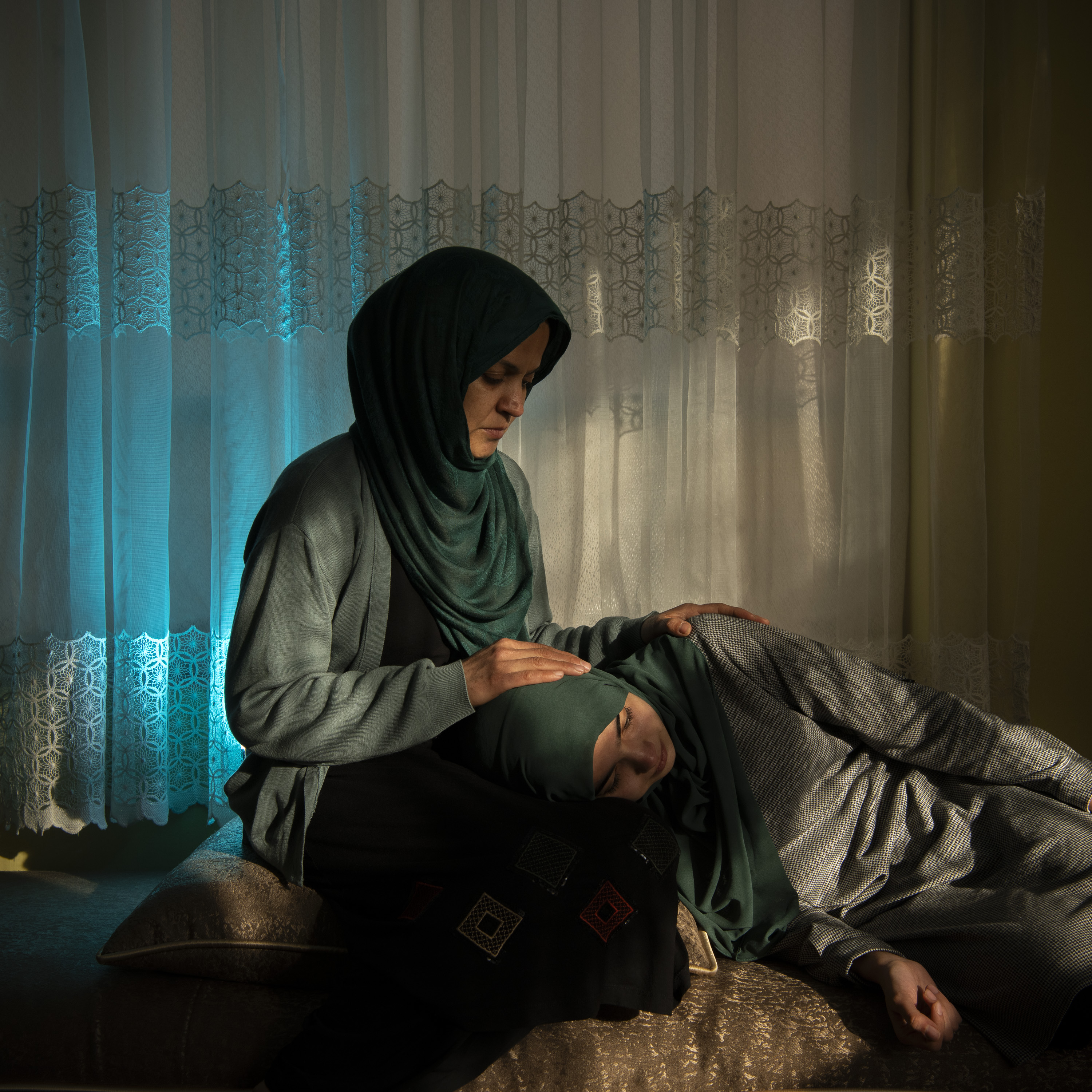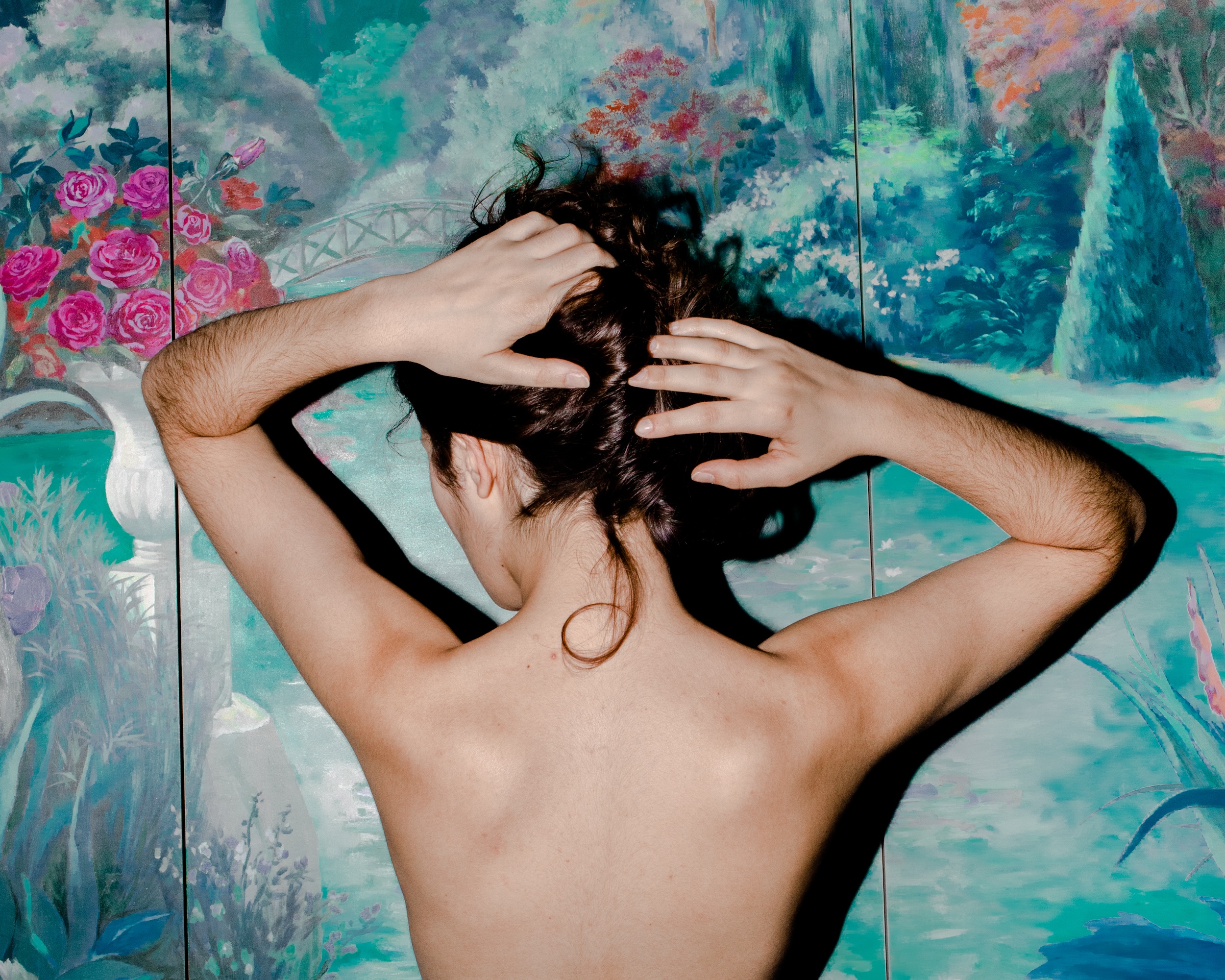Sexual Fantasies © Myriam Boulos
This year’s cohort covers projects from Gaza, Lebanon, Afghanistan and more, bearing witness to global atrocities and sharing marginalised stories of resilience
The Joop Swart Masterclass, an initiative by the World Press Photo Foundation, is a platform that brings together emerging talents in visual storytelling from across the globe. Held in Amsterdam, the programme this year united 12 photographers whose work addresses profound social, political, and cultural issues. Through workshops, discussions, and collaborations, participants refined their skills and explored fresh perspectives in the art of visual storytelling. BJP sat down with Belal Khaled, Myriam Boulos, and Kiana Hayeri, three of this year’s cohort.
A photojournalist from Gaza, Khaled has dedicated his career to capturing the realities of life under siege. In his work, he describes what he calls “an extermination”, pointing to the systematic targeting of civilians, infrastructure, and even cemeteries. “I will never forget Amina Ghanam, a young girl I found with her siblings wandering the hospital corridors,” he tells me, writing from Palestine, “orphaned and alone. She told me about the night when tanks crushed the container her family lived in, killing her father and sister and shattering her bones, leaving her in this state.”
Khaled’s images serve as a visceral record of the atrocities faced by Gazans, depicting orphaned children, bombed hospitals, and the desperation of those enduring deliberate starvation. He hopes his images “serve as irrefutable evidence to counter the justifications for the occupation’s crimes in Gaza. I want people to see with their own eyes the children and women killed without any guilt, to feel the urgency of standing up against injustice,” Khaled continues.
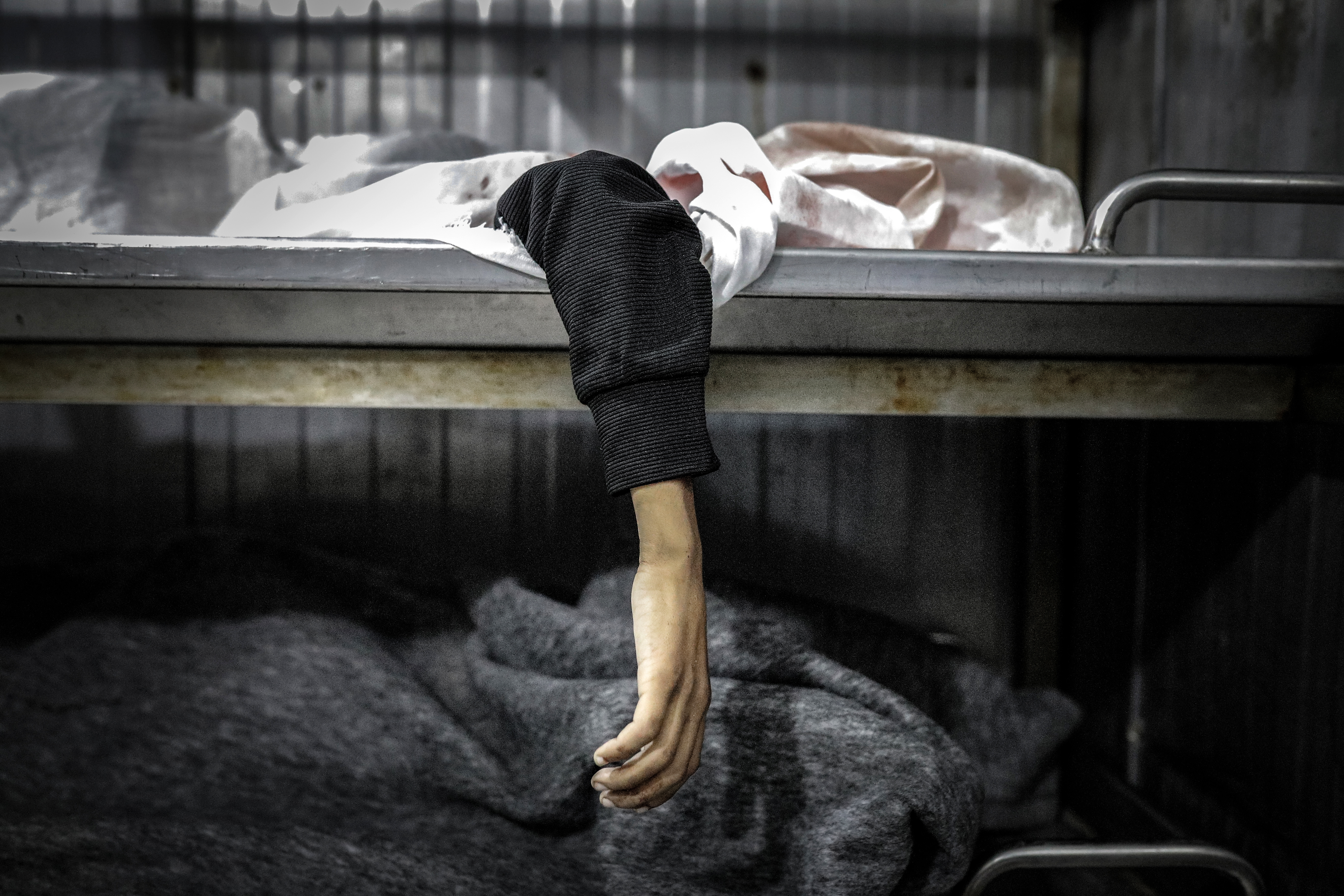
“I’m good at what I do, but I feel very unmotivated. So going into the masterclass was great because they pushed me out of my comfort zone”
Reflecting on his evolution as a photographer, Khaled noted a shift from capturing street beauty to documenting human suffering: “I often say that if a photograph cannot influence or change the world, it holds no value. Photography must serve as a catalyst for change, a testament to human suffering, and a call to action for justice.”
Khaled’s participation in the Joop Swart Masterclass provided a rare opportunity for him to connect with photographers from around the world, as Gaza remains isolated. He shared the unique challenges faced by Palestinian photojournalists, who often work under extreme conditions and adapt to losing equipment or spaces to work. “Through photography,” says Khaled, “I hope to leave a legacy of truth and resilience, a testament that even in the face of darkness, there is light to be shared.”
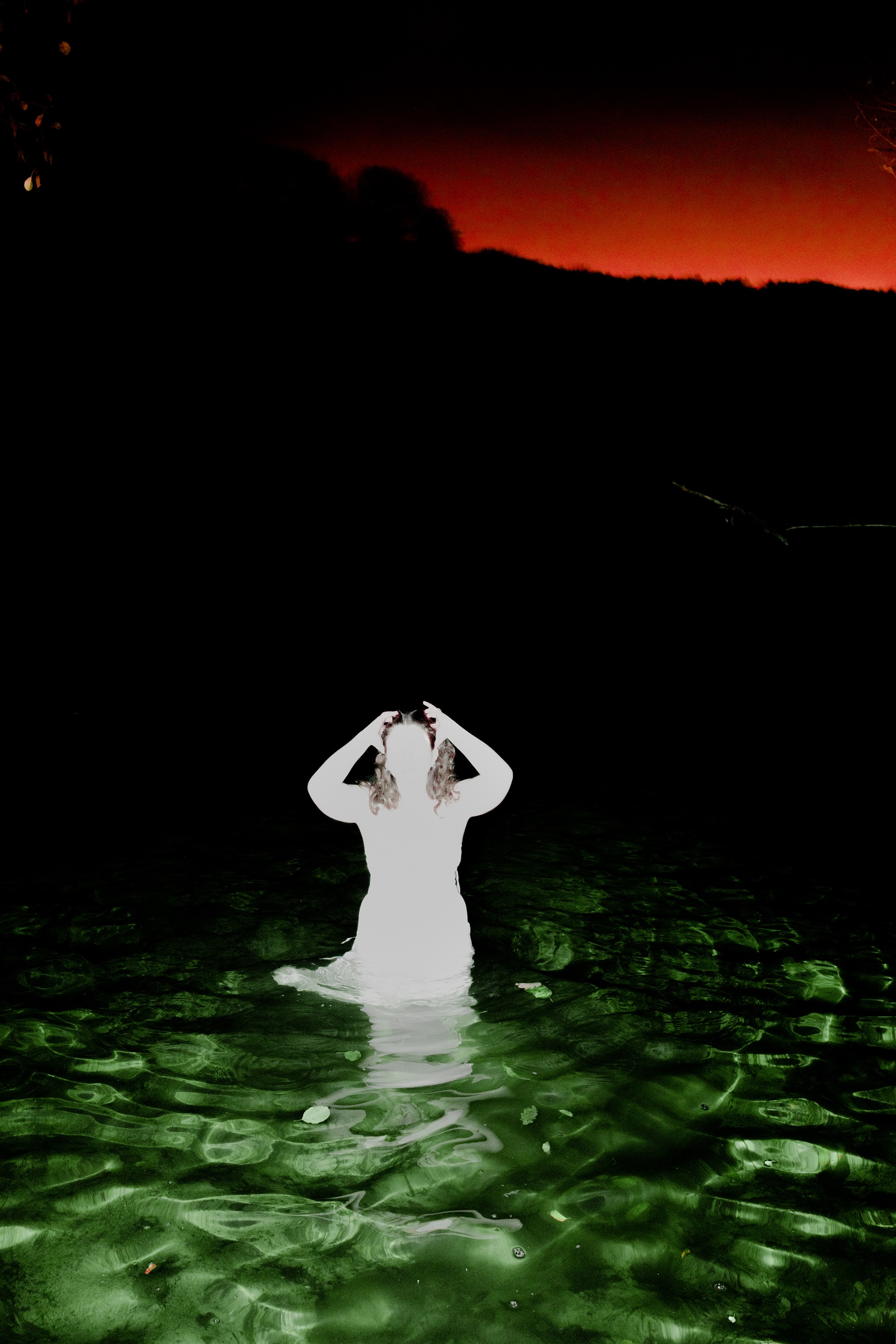
Lebanese photographer Myriam Boulos’s work delves into personal and collective experiences of resistance, intimacy, and societal transformation. Her early photography focused on nightlife, which she likens to revolutions – a space where people externalise suppressed emotions. During Lebanon’s 2019 revolution, Boulos’s work became collaborative, reflecting collective struggles.
After the devastating Beirut port explosion in 2020, she documented its aftermath, providing a platform for personal stories that challenge conventional portrayals of the region. “For me it felt like collectively coming out of an abusive relationship to finally say, ‘No, this is not normal’. This is when my work became more collaborative,” Boulos tells me. “I realised that by telling my own story, I was inevitably documenting the stories of other people.”
Boulos’s current projects further push boundaries. One explores women’s Sexual Fantasies through collaboration, challenging the media’s narrow and often reductive representations of Middle Eastern women. She initiated the project by sharing a call out asking, “If you are a woman or you have been socialised as a woman, and you want to share your sexual fantasies, send me an e-mail.” Boulos started the project to focus on the desires of her people and “to challenge western media’s representation of the region which normalises our pain and portrays our resistance as terrorism,” she continues. “Ironically enough I haven’t been able to focus properly on the sexual fantasies project this year because of Israel’s aggressions on Lebanon.”
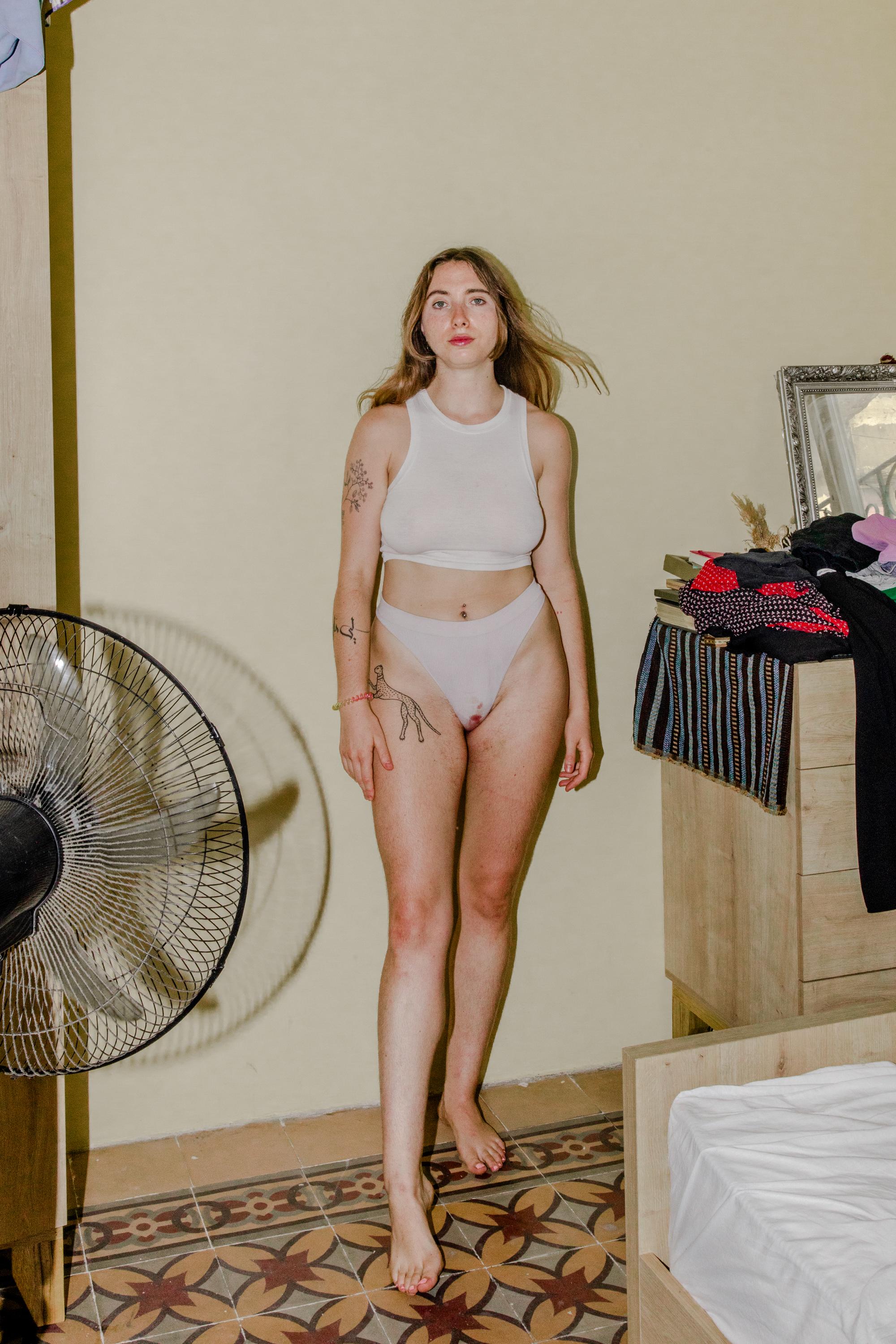
Simultaneously, she documents autism in the context of war, bridging her longstanding interest in neurodivergence with the ongoing crises in Lebanon. For Boulos, the Joop Swart Masterclass was a chance to pause and focus, gaining insights from mentors and peers. Her work continually questions the ethics of photography, balancing meticulous care with creative liberation. “It is very easy to take visually strong images when we feel entitled and think the world is ours to piss on,” she explains. “It takes much more time to create images that are aligned with our ethics, but it is worth it! I go from walking on egg shells (which I think is necessary) to letting go and having fun visually. It is a slow process but so am I.”
Kiana Hayeri, an Iranian-Canadian photographer, brings a nuanced lens to the lives of Afghan women and the global challenges surrounding education. While she initially felt overqualified for the Joop Swart Masterclass, Hayeri embraced the opportunity to reconnect with her craft, “I am very lost and I am unchallenged,” she tells me. “I’m good at what I do, but I feel very unmotivated. So going into the masterclass was great because they pushed me out of my comfort zone.” She walked away from the masterclass feeling “intellectually intrigued, and that has been the biggest value for me,” she continues.
Hayeri’s recent work stands as a counter-narrative to clichéd depictions of Afghan women. “I refuse to photograph Afghan women with a burqa in the cliche way,” she tells me. In her award-winning series No Woman’s Land, she avoids stereotypical images of women in burqas, instead portraying them as they live: dancing at parties, laughing with friends, and striving for normalcy amidst oppression. No Woman’s Land was produced with support from the Carmignac Prize in September 2024.
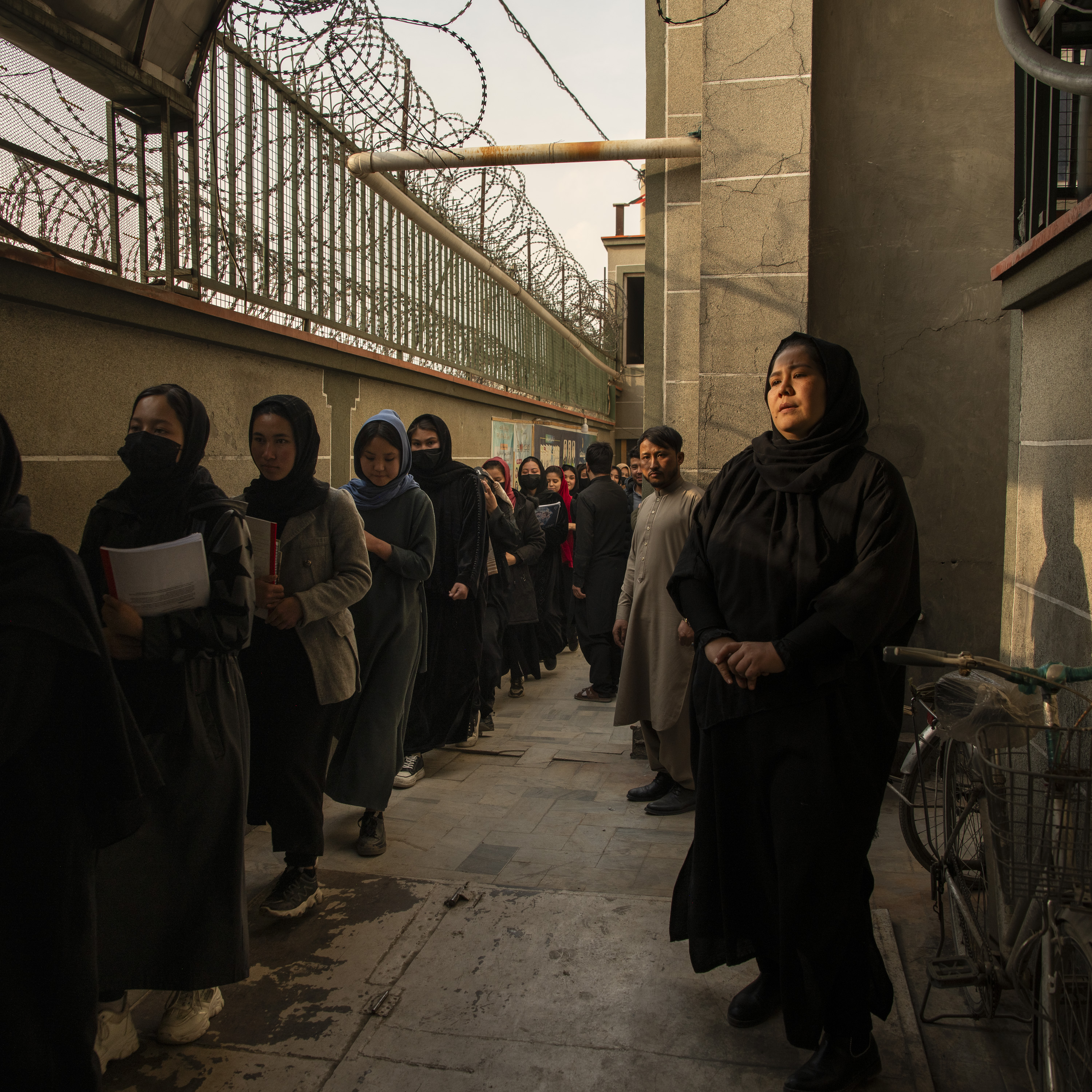
As a photographer, she believes her work has lost the innocence it once had due to an “optimisation” that comes with an excellence in professional photography. “You would go to places and hang out all day long to make the photo you need,” she reminisces of her early career. “Now, I know where to go to take the photo, when is the best time to go and shoot, but that also means I spend less time in the space that I want to.”
Her current focus examines the global assault on education, from Taliban-imposed bans to subtler forms of exclusion in countries like Canada, India, and Bosnia. By highlighting these interconnected struggles, Hayeri’s photography critiques systems of segregation and inequality, weaving localised experiences into a global narrative.
The Joop Swart Masterclass took place in Amsterdam from 27 October to 2 November, inviting 12 photographers from all around the world to develop a project, and develop the tools to make a viable career in photography.
